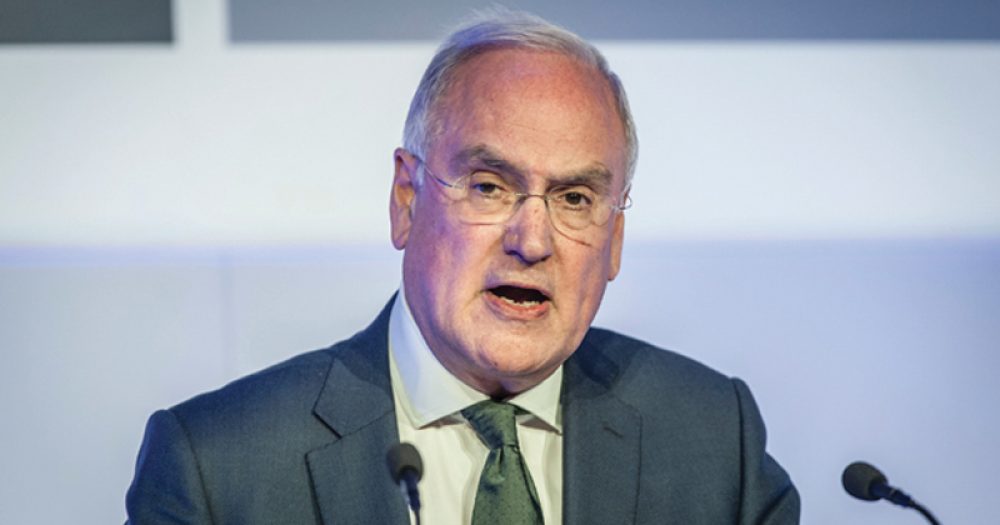Ofsted boss Sir Michael Wilshaw has taken aim at government plans to lift the ban on new grammar schools as he enters his final term as chief inspector, claiming a return to selection would be a “profoundly retrograde step”.
During a speech to the London Councils education conference this morning, Wilshaw said the notion that the poor stood to benefit from the return of grammars was “palpable tosh and nonsense”, and claimed the “soaring success” of schools in the capital made a “mockery” of the claim that the plan would boost social mobility.
The fears of many in the schools community who oppose new grammar schools were confirmed last month when government sources told the Sunday Telegraph that new prime minister Theresa May wanted to see the ban on new grammars imposed by Labour in the late 1990s abolished.
Wilshaw, who will step down as chief inspector in December following five years in the job, said that those “clamouring for a return to selection” should ask themselves why poor children in London were doing “so much better than their counterparts” in counties which still had the 11-plus.
“I appreciate that many grammar schools do a fine job in equipping their students with an excellent education,” Wilshaw said, “but we all know that their record of admitting children from non-middle-class backgrounds is pretty woeful.
“We certainly see that in areas like Kent and Buckinghamshire. But we also see it in the small number of London boroughs that have grammar schools.
“The proportion of disadvantaged children in the found grammar schools in Bexley, for example, is around 9 per cent compared to 28 per cent in its non-selective schools. Similarly in Sutton, where five out of the 14 schools are grammar schools, the proportions are about 7 per cent compared to 25 per cent.”
Wilshaw also argued that the borough of Hackney, where he used to be a head, achieved favourable outcomes for its pupils without any grammar schools.
“The notion that the poor stand to benefit from the return of grammar schools strikes me as quite palpable tosh and nonsense – and is very clearly refuted by the London experience,” said Wilshaw.
“Nearly eight out of ten of Hackney’s most able pupils last year obtained at least a grade B at GCSE maths and English. 62 per cent of youngsters go on to university compared to 48 per cent in the country as a whole.
“It is hard to believe that bringing back selection to this part of London would improve the prospects of children, especially from more disadvantaged backgrounds. In Hackney, the gap in attainment at key stage 4 between free school meal and non-free-school-meal pupils is 14.6 per cent. In Kent, which operates selection, the gap is nearly 34 per cent.”
Wilshaw also warned that a “grammar school in every town” would also mean three secondary moderns in every town, a consequence he said was “rarely mentioned”.
The outgoing chief inspector is not alone in his opposition to May’s plan.
Several Conservative MPs, including the education committee chair Neil Carmichael, have joined swathes of opposition MPs in coming out against it, while the Scottish National Party has not ruled out defying convention to work with Labour to vote down any legislation to scrap the ban.
Opponents of grammar schools have often sought to challenge claims that they aid social mobility in the face of evidence which supports Wilshaw’s claim that they are “stuffed full of middle class kids” and that they only help those who pass the 11-plus, while often having a detrimental impact on those who do not.
Wilshaw, a strong supporter of the government’s academies reforms, told the conference that a return to selection risked jeopardising the “nascent but welcome signs of progress” such as the high proportion of Team GB medallists who attended comprehensive schools and the news that the University of Oxford will this year take its highest proportion of state school pupils for at least 40 years.
“I fear the clarion call of the ‘bring back grammar schools’ lobby will grow ever louder and more persuasive unless more of our secondary schools start delivering for all of their children,” he added.
“Because let’s face it, in many ways London is the striking exception to the rule.”








Your thoughts